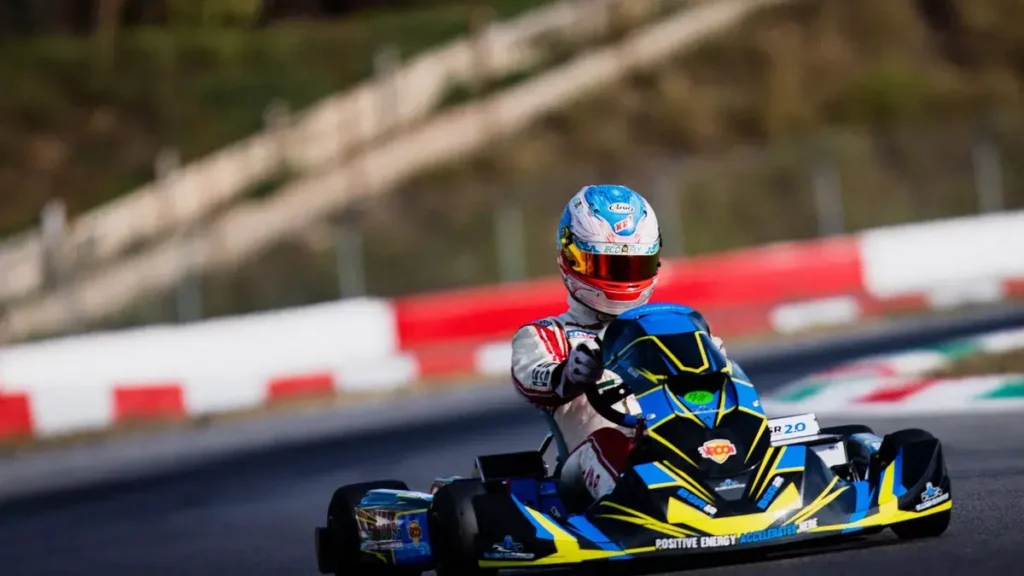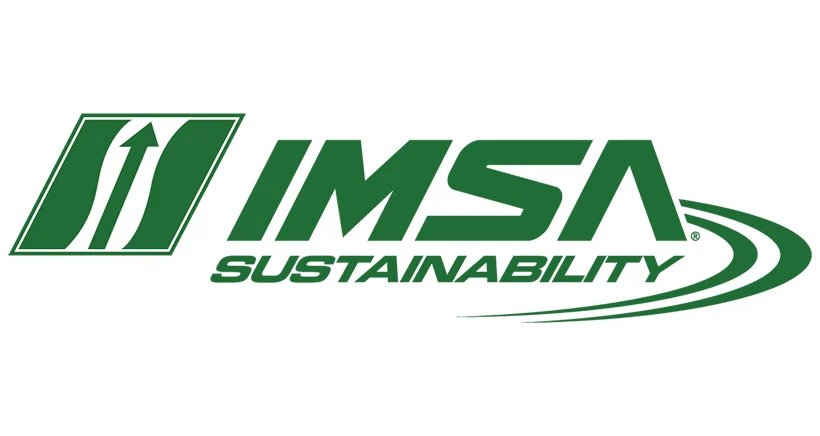Sustainable motorsport will have a presence at this year’s 80th Pau Grand Prix, which just goes to show that tradition and sustainability can coexist.
In addition to that, this week’s Sustainable Motorsport Roundup is absolutely jam packed. I have news from IMSA, Formula 1, Formula E, Extreme E and the European Truck Racing Championship. I also have some cool sustainable motorsport tech you will find interesting including a hydrogen-powered kart!
All this and more in this week’s edition of the Sustainable Motorsport Roundup. Its green news racers can use.
Sustainable Motorsport News
The 80th edition of the Pau Grand Prix, which takes place from May 12-14, has some great sustainable motorsport initiatives on tap. In addition to the daily demonstrations of hydrogen-powered motorsport (the H24 hydrogen Le Mans racer, a HVO100-powered biodiesel ETRC racing truck and a thermal hydrogen kart by Vision Technology), the entire Sprint Cup By Funyo field will use a more sustainable certified fuel supplied and manufactured by the company TotalEnergies.
The 33% of the fuel is made up second-generation non-fossil fuel and has been tested extensively in particular on an engine bench at Oreca as well as during numerous track tests. These tests showed that this new fuel had no impact on the performance and operating parameters of the SP05 engine compared to the fuel normally used.
Another interesting point is that Pau Grand Prix will be the 2nd weekend of the Sprint Cup by Funyo with the same Michelin SL8 tires as those already used in Mugello at the end of March, which means 4 timed practice sessions and 8 races of 20 minutes with the same 4 tires. As a result, the competitors will only use 3 sets for the whole season per car.
I should also point out that French Formula 4, which is also competing during the Pau Grand Prix, is also powered by sustainable fuel.
The FIA Motorsport Games marked Earth Day 2023 with the confirmation that the 2022 event’s carbon footprint and emissions will be compensated via VCS (Verified Carbon Standard) certified environmental projects, supporting forest conservation, afforestation (planting trees on land that has not recently been covered with forest) and hydro power.
With planning well underway for the 2024 FIA Motorsport Games, being hosted by Generalitat Valenciana, Spain, proper and thorough environmental management of the event remains a priority. Action already in progress includes:
- Carbon offset calculation and compensation programme, in agreement with all parties, the host city and all supporting venues
- Exploring the introduction of biofuel for all disciplines
- Progressing the introduction of electric and hydrogen powered categories
- Following all local, regional and national environmental laws and regulations
- Collaborating with suppliers who offer sustainable transport, accommodation, catering and branding production
- Single use plastic ban event wide
- Communication of compulsory environmental policy to all stakeholders, to ensure all participants follow environmental guidelines
- Compulsory compliance with the highest level of the FIA Environmental Accreditation Programme
Performance Insights looks at the work of Paddy Lowe and Dr Christiana Pace, the F1 engineers tackling climate change. “Paddy Lowe and Dr Christiana Pace are two such people; Lowe has set out to create sustainable fuels which can be produced at an industrial scale to accelerate the world’s shift away from an addiction to fossil fuels, while Pace is helping organisations including Formula 1 teams to achieve their environmental sustainability goals.”
BWT Alpine F1 Team has announced that it has successfully achieved the FIA Three-Star Environmental Accreditation, part of the FIA Environmental Accreditation Programme, for both its Enstone and its Viry Châtillon sites.
“The award of the FIA Three-Star accreditation stamps the initiatives taken by BWT Alpine F1 Team as it made progress in areas including the set-up of an efficient environmental management system alongside operational initiatives involving the team such as the implementation of bottle free zones both trackside and at its Enstone factory, courtesy of the support of title partner BWT. It also highlights the sourcing of renewable energy for its Enstone factory’s day to day consumption [since 2004]. In Viry Châtillon, certified ISO 14001 [since 2011], the work to reduce its environmental impact is continuous and includes actions such as the implementation of biowaste sorting, no more single use plastic cups and a 95% reduction of use of solvents for cleaning parts. Moreover, the accreditation reflects the close collaboration between both our sites: from feeding back about common experiences, sharing best practices, to common thinking about initiatives to implement across Viry and Enstone.”
Race car manufacturer Revolution Race Cars “are committed to reducing the carbon footprint of their manufacturing process, creating products through economically sound processes that minimise negative environmental impacts while conserving energy and natural resources.” They are making sustainability an important part of the manufacturing process in the following areas:
- Composites
- CFD
- Design & Fuel
- Suspension
You can learn more about these initiatives here.
Green Racing News looks at Special One Racing, the team that is supplying an electric rallycross race car to Sébastien Loeb for rallycross competition. “Special ONE is a racing team born with the mission to innovate in the market of ecological and sporty vehicles, which has announced its entry into the World Rallycross Championship with two Delta Evo-e RXs, designed and manufactured by GCK Performance.”

In Silent but speedy: Why electric go-karting is the imminent future, Interesting Engineering looks at Blue Shock Race (BSR) and the future of electric karting. “BSR emphasizes that this technology reduces noise and emissions, which is a huge advantage, but the main thing for the BSR team in motorsports has been performance and their experience in racing electric karts on the track.”
Sustainable Motorsport Tech & Series News
 What’s the future? 👀 What if frying potatoes could help produce a more sustainable fuel for trucks? 🍟 Discover HVO100, our certified 100% sustainable diesel already in use in the Goodyear FIA European Truck Racing Championship! ✳️
What’s the future? 👀 What if frying potatoes could help produce a more sustainable fuel for trucks? 🍟 Discover HVO100, our certified 100% sustainable diesel already in use in the Goodyear FIA European Truck Racing Championship! ✳️ The video above looks at the HVO100 fuel used in the FIA European Truck Racing Championship that I mentioned was being demoed at this year’s Pau Grand Prix.
STCC organizers have announced a charging solution for its first electric season which will be independent of existing infrastructure and generators. Atlas Copco’s ZenergiZe energy storage system, a system that does not require a generator, will be used on all race weekends over the course of the season. That means no on-site emissions or noise, with the system charged exclusively using renewable energy.
“The 45 kWh batteries of the new 550hp STCC cars will be charged through a regular CCS Type 2 connection and can be fully charged in 45 minutes, running at reduced capacity in order to reduce the environmental impact and limit battery wear, according to the STCC organisation.”
In Going in circles to create a more sustainable future, Repsol explains their circular economy strategy. “Our circular economy strategy was approved in 2016 and is incorporated within our company’s key lines of action, reinforcing our sustainability strategy and our commitment to reach net zero emissions by 2050.“
SpeedCafe has details on the Supercars Gen3 “supergreen” fuel that they are using. “Exclusively, Speedcafe has learned that the ‘secret’ ingredients of the new BP E75 race fuel are second-generation ethanol and a synthetic gasoline.”
While SuperCars is moving towards more sustainable racing fuel, they are not rushing towards electrification. “In that space, there’s a lot of change. I’m not sure that there’s a full hundred percent certainty around that technology and where it’s heading and where those trends are going. We’re open to it, we’re open to investigating that, but we’re not reactive to it.”
Formula 1 chief technical officer Pat Symonds has explained to SpeedCafe the process and rationale behind the sport developing its own sustainable fuel.
“If we’re using 100 percent sustainable fuel, if we’re showing it’s a drop in fuel, it’s a fuel that we can use in cars with an absolute minimum of modifications – by that I mean a little bit of remapping and things like that, but no real physical changes to the car – then we’re producing something that has a benefit to all the internal combustion engines that are out there,” Symonds explained.”
With the newly announced Formula 1 regulations update that are primarily focused on their new sprint race format, it was announced that certain sustainability initiatives will be exempt from the cost cap.
“Teams have been told that costs related to some sustainability initiatives will be excluded from the budget cap this year, “with particular focus on environmental concerns” according to the FIA. Among the exclusions are “costs associated with installing sustainable infrastructure, auditing and monitoring of competitors’ carbon footprint, donations to charities engaged in the promotion of environmental sustainability projects and carbon offset programmes”.”

As part of Earth Day, IMSA has highlighted their sustainability initiatives through two videos that you can watch below.


Extreme E has published its second Sustainability Report, compiled and produced in collaboration with EY. The Report reveals the racing series’ environmental footprint for Season 2, maintaining the carbon-neutral status it established from the outset and continuing to champion e-mobility by racing electric vehicles only.
“EY teams calculated that 9,045 tCO2-e was emitted during Season 2 (1808.8 tCO2e per race), all offset through the purchase of Verified Carbon Standard (VCS) environmental certificates for two deforestation programmes in Brazil’s Amazon.”
Checkered Flag reports that it was confirmed during last weekend’s Berlin E-Prix double-header that fast-charging pit-stops wouldn’t be getting introduced during the 2022/23 ABB FIA Formula E World Championship as originally planned, with them set to be delayed until next season.
“The idea behind fast-charging pit-stops is to make the racing more tactical, given that the mandatory stop would see drivers receive four kilowatt hours of energy within thirty seconds, through a mighty 600kW “booster”.”
The promoters of SUPER GT and DTM have held a preliminary meeting to discuss a successor to their jointly-created Class 1 regulations amid the changing landscape in motorsport and the wider automotive industry. “While the automotive industry continues to invest billions in electric cars every year, Voss expects combustion engines to continue to play a leading role in motorsport, but with measures to reduce carbon emissions.”

The Go-Kart in the video above is powered by a tiny 2kg rotary hydrogen engine.


